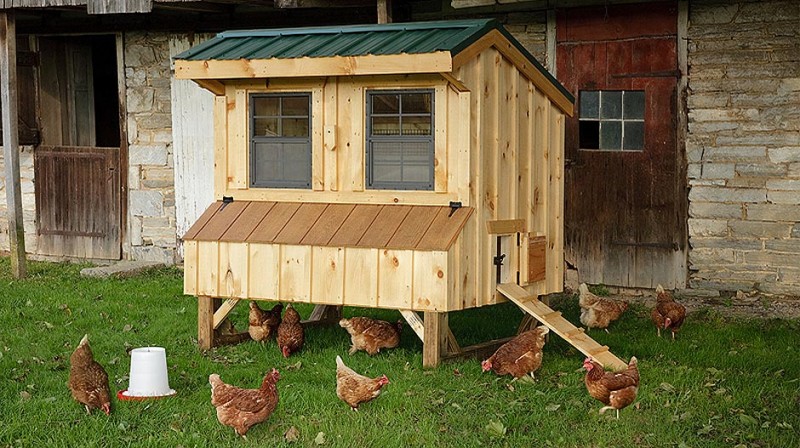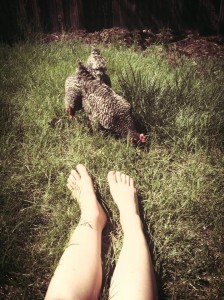Chickens are great for food and self-sufficiency. They are the oldest domesticated animal in the world, which means people have been using them for eggs, meat, manure compost, and insect control for thousands of years. If you’re thinking about starting your own flock, consider the following.
Why do you want chickens? There is an investment of time and money involved, so consider your return. These are the things you’ll have to do if you keep chickens:
- Build a PREDATOR PROOF coop and run
- Decide what kind of birds and how many
- Raise the chicks or buy adult birds
- Clean the coop regularly and compost or dispose of manure
- Feed and water them
- Deal with disease and/or destructive habits
- Collect eggs regularly
- Winterize your flock
- Butcher and process them
If you live in a town or city check city ordinances before you start your flock. Most municipalities will allow a certain number of hens, but no roosters. A rooster is not necessary for your hens to lay eggs, but it is for more baby chickens. Investing the time and money to build a strong, secure coop and run can’t be overstated. It is devastating to work hard raising a flock only to have it wiped out by predators, disease, or cannibalistic habits that arise from stressful conditions.
A word of warning for first-time chicken keepers. Some people get attached to their chickens, and eating your pets gets weird. Do not let your kids take them into your house. They actively carry salmonella and other bacteria that’s harmful to humans. They are not house pets. It may seem silly to bring it up, but people who didn’t grow up in the country struggle with this.
Most people order chicks in the spring for egg and meat production. Chicks need a heat source for about three months before you can put them outside, depending on your climate and when you get them. They’ll require an inside area (it will get stinky and noisy) where you can install a heat lamp and have enough space for quickly growing critters. They need at minimum 1-2 square feet per bird as they grow. They also need constant access to food and water, and daily cleaning. It takes an average of 4-5 months for chickens to start laying eggs. Meat birds mature between 3 and 5 months depending on the breed. On average, after three years, egg production declines and then your hen becomes dinner or a pet.
If you decide you’re ready, check back for articles on the next steps; choosing the right breeds and raising chicks.





